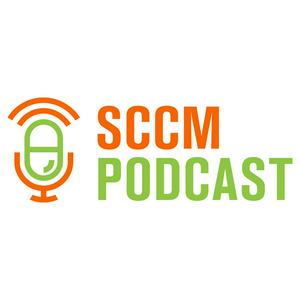In this episode of the Society of Critical Care Medicine (SCCM) Podcast, host Maureen Madden, DNP, RN, CPNP-AC, CCRN, FCCM, speaks with Javier Varela, MD, MSc, about his study, “Acute Bronchiolitis in Infants on Invasive Mechanical Ventilation: Physiology Study of Airway Closure,” published in the September 2025 issue of Pediatric Critical Care Medicine. The study revealed new insights into airway pathophysiology in infants with severe bronchiolitis who require mechanical ventilation, a population that comprises a substantial portion of winter pediatric intensive care unit (PICU) admissions worldwide. Dr. Varela is an intensivist in the PICU in the Department of Pediatrics at Clínica Alemana de Santiago, in Santiago, Chile.
Differing ventilatory strategies and the heterogeneous phenotypes of bronchiolitis motivated Dr. Varela’s team to investigate airway closure, which was detected in seven of the 12 patients included in the study. Airway opening pressure frequently exceeded the set positive end-expiratory pressure (PEEP) levels—highlighting a potential gap in traditional ventilator management. Dr. Varela explains that respiratory mechanics, particularly driving pressure and respiratory system compliance, can be misinterpreted when airway opening pressure is not considered.
Study limitations included bacterial coinfection in nearly half the patients and the constraints of a single-center design, but Dr. Varela said that these factors did not appear to alter the physiologic observations.
Although more research is needed before making clinical recommendations, the study established a foundational understanding of airway closure in patients with bronchiolitis and underscores the need for future work on personalized ventilation strategies, PEEP titration, and the potential heterogeneity of airway behavior in this population.
Resources referenced in this episode:
Acute Bronchiolitis in Infants on Invasive Mechanical Ventilation: Physiology Study of Airway Closure (Varela J, et al. Pediatr Crit Care Med. 2025;26:e1096-e1104)
Airway Closure in Acute Respiratory Distress Syndrome: An Underestimated and Misinterpreted Phenomenon (Chen L, et al. Am J Respir Crit Care Med. 2018;197:132-136)


